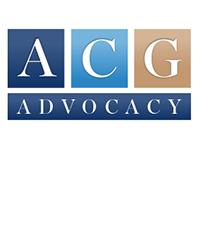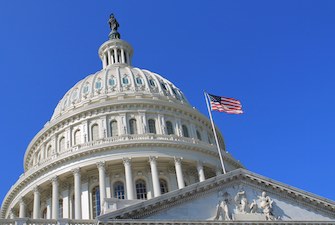Editorial Note: What follows is a report by American Continental Group (ACG), which examines the policy landscape for a wide spectrum of intellectual property (IP) issues that are expected to be on the table in 2015. Please contact ACG with any questions related to this report.
___________
The November 2014 midterm elections shuffled up the seats in both the U.S. House and Senate, overcoming the Democrat majority in the Senate and strengthening the Republican majority in the House of Representatives. With Republicans in control of Congress, the party will be trying to show they can govern by passing legislation amidst the tenacious bipartisan divide. To do so, Republicans are looking for areas in which they and the President can find common ground. Passing trade promotion authority (TPA) and patent litigation legislation are expected to be early on the agenda, as numerous, influential Republicans and the Administration restated supportive calls in the weeks and days leading up to the holiday recess. Further details on the IP policy landscape for this year with the 114th Congress are provided below.
Key Leadership Changes
While Reps. Bob Goodlatte (R-VA) and John Conyers (D-MI) will remain the Chairman and Ranking Member, respectively, of the House Judiciary Committee, Rep. Darrell Issa (R-CA) has taken over as Chairman of the Subcommittee on IP. Rep. Jerry Nadler (D-NY) will retain his post as Ranking Member of the Subcommittee. The full rosters for the House Judiciary Committee and its IP Subcommittee have not yet been announced for the 114th Congress.
With the flipping of the Senate, all Senate leadership roles flip as well. On the Senate Judiciary Committee, Patrick Leahy (D-VT) has stepped down as Chairman to become Ranking Member. The former Ranking Member, Chuck Grassley (R-IA), has taken over as Chairman. Grassley is the first non-lawyer to fill this role. Senator Grassley has supported targeted anti-piracy efforts, saying “It’s critical we protect the intellectual property rights of our businesses and fight online infringement, but at the same time, we can’t do harm to the internet, the Constitution, or the ability of businesses to grow and innovate.”
The Senate Judiciary Committee Members for the 114th Congress have been announced (subject to ratification). The list includes:
| Republicans | Democrats |
| Chairman Chuck Grassley, Iowa Orrin Hatch, Utah Jeff Sessions, Alabama Lindsey Graham, South Carolina John Cornyn, Texas Mike Lee, Utah Ted Cruz, Texas Jeff Flake, Arizona David Vitter, Louisiana David Perdue, Georgia Thom Tillis, North Carolina |
Ranking Member Patrick Leahy, Vermont Diane Feinstein, California Charles Schumer, New York Dick Durbin, Illinois Sheldon Whitehouse, Rhode Island Amy Klobuchar, Minnesota Al Franken, Minnesota Chris Coons, Delaware Richard Blumenthal, Connecticut |
Intellectual Property
a. Copyright Review
House Judiciary Committee Chairman Bob Goodlatte (R-VA) will keep copyright high on the Judiciary Committee’s agenda in the 114th Congress. Given that Chairman Goodlatte has already held nearly twenty hearings as part of his copyright review, it is safe to say that the initial hearing stage of the review is coming to a close, although he is expected to hold several additional hearings early this year. One of such hearings may call on Copyright Register Maria Pallante to return to the Committee to testify.
Chairman Goodlatte will need to decide what legislative actions will come out of the review process: either a comprehensive copyright reform bill, or a more piecemeal approach primarily consisting of targeted measures and technical corrections. Regardless of the route he chooses, both small copyright claims and music licensing are most likely to take the spotlight.
The Copyright Office has recommended that Congress should consider providing new and more efficient processes to enable the resolution of small claims. Moreover, senior House Judiciary Committee staff has expressed support for a small copyright claims remedy.
Specific music licensing legislative efforts that are expected to garner attention include Rep. George Holding’s (R-NC) RESPECT Act (although it is worth noting that Holding has left the Judiciary Committee for the Ways and Means Committee) and Rep. Doug Collin’s (R-GA) Songwriters Equity Act. Rep. Jerold Nadler (D-NY) has indicated that he still wants to introduce his more comprehensive music licensing bill (which will likely include a version of the Performance Rights Act) early this year.
Finally, although Chairman Goodlatte will maintain control of the copyright review, the new Subcommittee Chairman Darrell Issa (R-CA) will still play an important role in that area and, according to press reports, he has already identified one specific area he’d like to reform: online copyright theft and “[getting] all the parties together to effectively drive out” markets that trade in stolen intellectual property. Whether he is envisioning legislation, working to enhance Administration leverage points and/or holding private discussions focusing on marketplace solutions, remains to be seen.
b. Copyright Office Modernization
The new IP Subcommittee Chairman Issa is expected to maintain control of the Copyright Office oversight functions. He expressed significant interest in this issue at a Copyright Office modernization hearing in the second half of 2014, and he has been talking with the Copyright Office about ways to make it more useful to stakeholders. His staff has indicated that he thinks the Copyright Office should be modernized before there is broader copyright reform. Several outside stakeholders submitted statements for the record to the Committee agreeing that the Copyright Office needs more control over its budget, additional staffing, and an improved and independent information technology system. Few, if any, of the statements for the record addressed the more complicated issues of whether or exactly how the Copyright Office should be elevated within the Legislative Branch or if it should be moved to the Executive Branch.
c. Patent Litigation Reform
Given that President Barack Obama mentioned patent litigation reform as a priority in his State of the Union address and again in October at a California town hall, and House Speaker Boehner (R-OH) placed “combating abusive patent litigation” on his roadmap for the 114th Congress, patent litigation legislation is an area where Congress and the Administration are expected to attempt to show they can work together. Several other prominent House and Senate leaders have also voiced their intent to legislate on the issue.
Last Congress, Chairman Goodlatte’s patent litigation reform bill sailed through the House with a 325-91 bipartisan vote, but stalled in the Senate. With Republicans in control of the Senate in the 114th Congress, the legislative environment will be friendlier for accomplishing patent litigation reform. Chairman Goodlatte’s bill should easily pass the House again. Subcommittee Chairman Issa has said he will begin with this bill as a base text, but believes they can “make some enhancements.” Chairman Issa has also indicated that he will hold a hearing on the subject. Discussions with Chairman Goodlatte’s staff indicate that Subcommittee Chairman Issa may have the Chairman Goodlatte’s blessing on that approach, as there is the sentiment that if the House passes a bill too quickly this Congress, all of the attention will turn to the Senate, and the House will not hold as much sway over the process.
In the Senate, Senator John Cornyn (R-TX), a leading GOP voice on patent litigation reform and a member of the Senate Judiciary Committee, will help clear the path. As the GOP Whip, Cornyn is second in GOP Senate leadership, and has a strong voice in the Senate’s legislative agenda.
While a quick path to passage of patent litigation reform is not expected, it could be used as a means to satisfy both the tech and retail industries, in place of other legislative items the GOP- controlled Congress will not likely be able to deliver on (e.g., the Marketplace Fairness Act and Immigration Reform).
d. TradeSecrets
The Trade Secrets Protection Act, introduced by Rep. George Holding (R-NC), enjoyed broad bipartisan support as the House Judiciary Committee reported it out of committee earlier last year. This bill would create a federal civil remedy for trade secret theft, as well as provide trade secret owners with remedies such as damages, injunctive relief, and possible fee shifting and treble damages. Despite the wide-spread support, the bill was held up by supporters of patent litigation reform who, disappointed that a patent litigation reform bill was not passed by Congress, held up the legislation in hopes they could gain leverage for this Congress.
Senate leaders, including Orrin Hatch (R-UT), have also expressed interest in passing legislation on trade secrets. Senators Hatch and Chris Coons (D-DE) have led the march on trade secrets in the upper chamber, and introduced their own legislation on the issue last year: the Defend Trade Secrets Act. On the Senate side, there is talk of a trade secrets hearing in the first half of the year, but it is widely acknowledged that, for political reasons, patent litigation reform legislation will likely have to move before the Senate passes a trade secrets bill.
e. ICANN
The “roll out” of new generic top-level domains (gTLDs) will continue this year; several prominent new domains such as .movie, .music and .books are expected to emerge. These will increase visibility on the Hill and with consumers. Concerns regarding the extent to which these and other new gTLDs will protect copyrighted material and trademarked brands will remain, and there has been some discussion of increasing pressure on ICANN in this regard. It is less clear what, if anything, ICANN itself can actually do at this point, as the rules for the management of new gTLDs are well established. Given concerns in this area, congressional hearings on IP protections in the new gTLD environment as well as extensive ICANN oversight are expected this year.

![[IPWatchdog Logo]](https://ipwatchdog.com/wp-content/themes/IPWatchdog%20-%202023/assets/images/temp/logo-small@2x.png)



![[Advertisement]](https://ipwatchdog.com/wp-content/uploads/2024/04/Patent-Litigation-Masters-2024-sidebar-early-bird-ends-Apr-21-last-chance-700x500-1.jpg)

![[Advertisement]](https://ipwatchdog.com/wp-content/uploads/2021/12/WEBINAR-336-x-280-px.png)
![[Advertisement]](https://ipwatchdog.com/wp-content/uploads/2021/12/2021-Patent-Practice-on-Demand-recorded-Feb-2021-336-x-280.jpg)
![[Advertisement]](https://ipwatchdog.com/wp-content/uploads/2021/12/Ad-4-The-Invent-Patent-System™.png)







Join the Discussion
No comments yet.